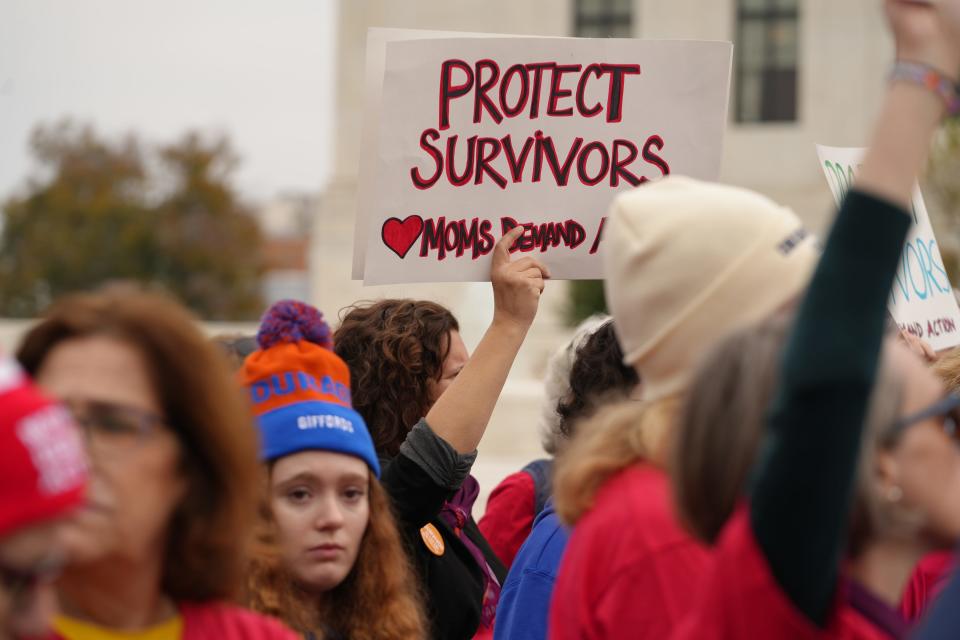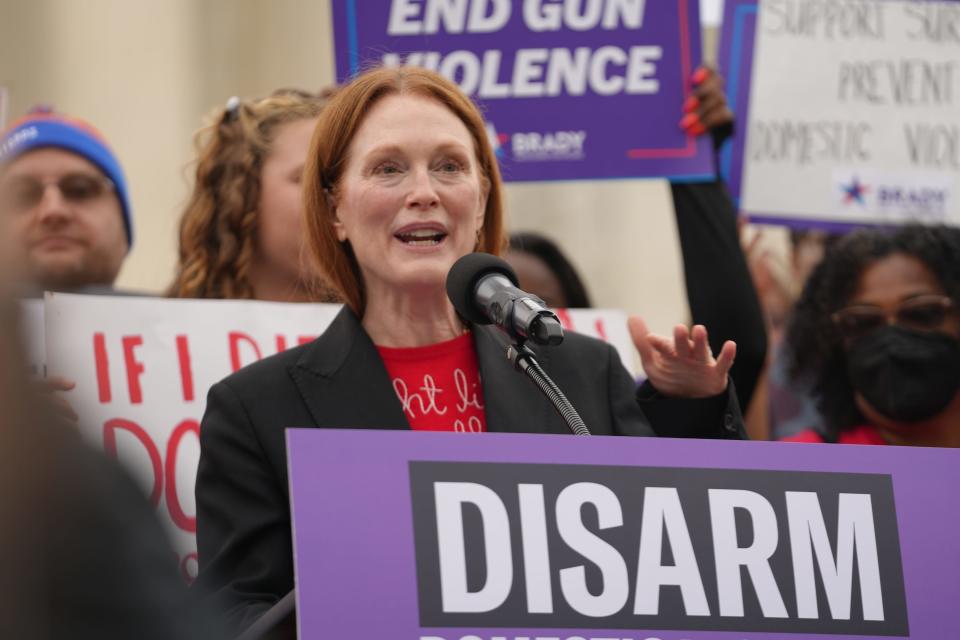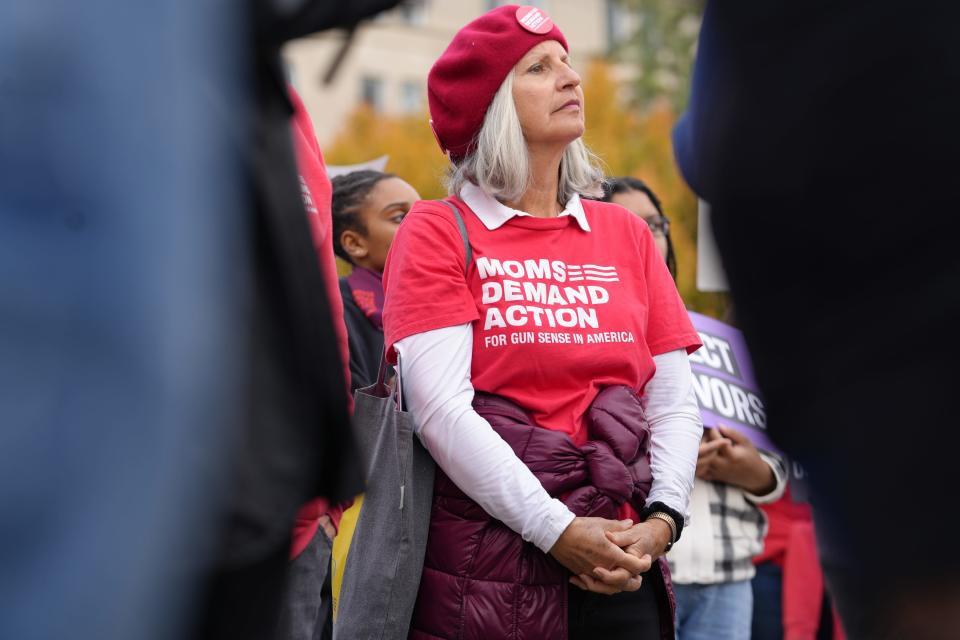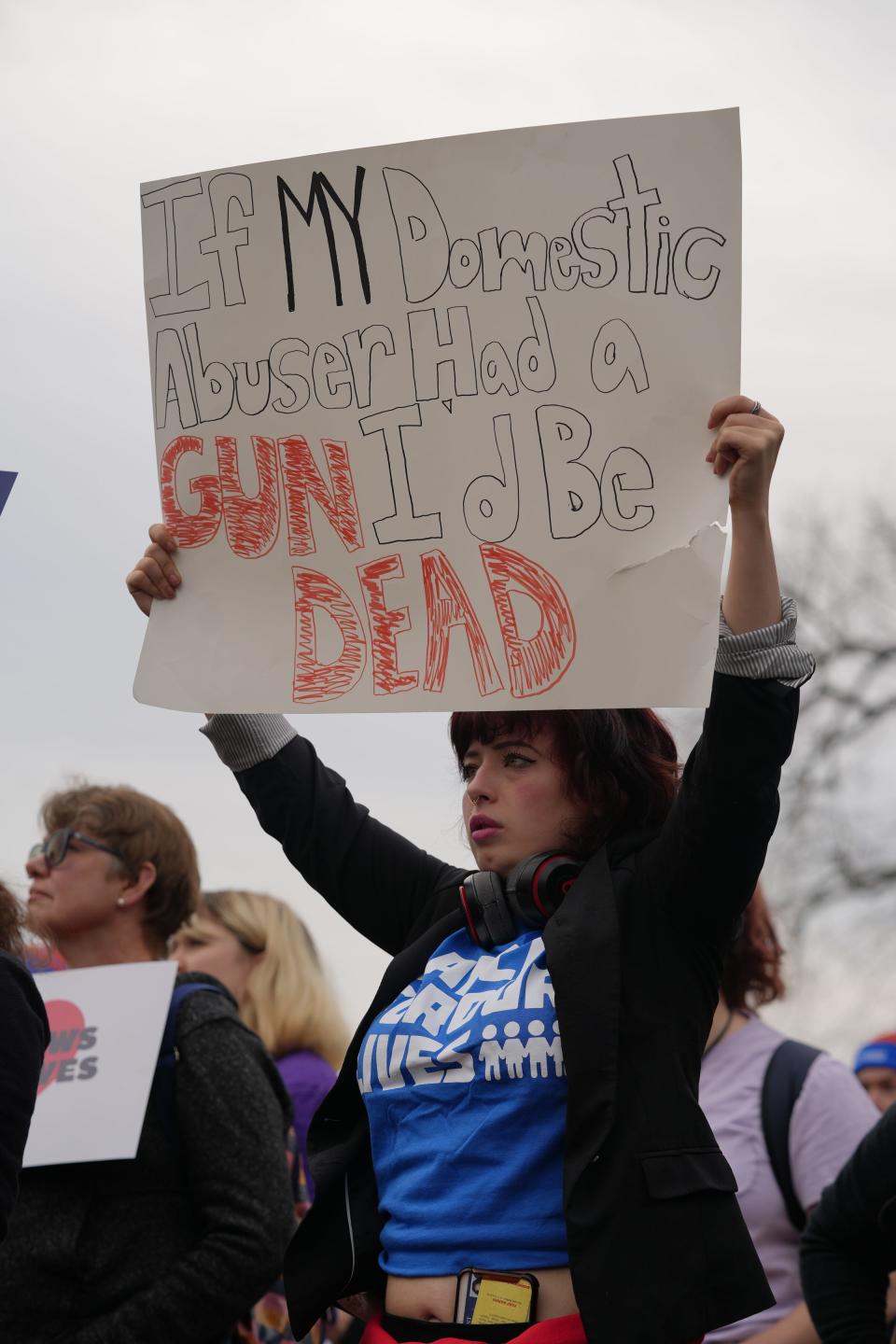Supreme Court poised to support law banning domestic abusers from owning guns
WASHINGTON ? The Supreme Court on Tuesday signaled it will likely uphold a law banning domestic abusers from owning guns, even as the justices wrestled with how such a decision might affect other challenges of gun laws under the Second Amendment.
In one of the most closely watched Supreme Court cases of the year, a Texas man named Zackey Rahimi is asking the justices to throw out his conviction under a federal law that bars people from possessing guns if they are the subject of a domestic violence restraining order. The court's decision, expected next year, could have sweeping implications for other gun laws if it clarifies the standard by which those prohibitions are judged.
During roughly 90 minutes of argument, several of the court's conservatives appeared skeptical of the idea pressed by Rahimi's lawyer that a Second Amendment decision last year left the government virtually no room to take guns away from dangerous people. In that decision, NYSRPA v. Bruen, the court ruled that gun regulations must be "consistent with this nation's historical tradition of firearm regulation" to survive court challenges.
One of the questions for the Supreme Court on Tuesday was what to do about a situation, such as domestic violence, in which there was essentially no law on the books when the Second Amendment was enacted. Much of the discussion focused on the idea that even if the framers didn't ban domestic abusers from owning guns there was historical precedent for banning guns from people who were considered dangerous.
Dig deeper: A blockbuster gun rights case lands at the Supreme Court. Here are three justices to watch.
"You don't have any doubt that your client's a dangerous person, do you?" Chief Justice John Roberts asked J. Matthew Right, the federal public defender representing Rahimi.
"Your honor, I would want to know what 'dangerous person' means," Wright responded.
"Well, I mean, someone who's shooting, you know, at people," Roberts said. "That's a good start."
Wright argued that the Biden administration was misreading the Supreme Court's precedent in Bruen. There is no historical tradition, he said, for banning guns from people in Rahimi's situation and outright bans by Congress are different from removing someone's guns temporarily if they appear to be a danger to themselves or others.
The Rahimi case has once again thrust the Supreme Court into the nation's roiling political debate over guns and mass shootings, such as the one carried out in Maine last month. The court, in recent years, has tended to side with gun rights advocates, including in major decisions in 2008, 2010 and the Bruen decision last year.
More: Your guide to the current supreme court justices: ages, who is chief justice, more.

Some conservative justices focus on spillover impacts
U.S. Solicitor General Elizabeth Prelogar, representing the Biden administration and defending the federal law, also faced some sharp questioning from the court's conservatives about the scope of her argument that people who are "not responsible" or "dangerous" can be barred from gun ownership.

"Is someone who drives 30 miles an hour in a 25-mile-an-hour zone, does that person qualify as law abiding or not?" Roberts asked. "It seems to me that the problem with 'responsibility' is that it's extremely broad. What seems irresponsible to some people might seem like, 'Well, that's not a big deal' to others."
The distinction, Prelogar said, is grounded in the concept of dangerousness. Laws that intend to remove guns from people the government deems dangerous, she said, are consistent with the nation's history and the Second Amendment.
"Guns and domestic abuse are a deadly combination," Prelogar said in her opening remarks. "Throughout our nation's history, legislatures have disarmed those who have committed serious criminal conduct or whose access to guns poses a danger."
Peering into the 'dark well of American history'
Wright said the Biden administration was misreading recent Supreme Court precedents expanding gun rights, especially last year's decision in Bruen.
"It feels like what the government is doing is looking down the dark well of American history and seeing only a reflection of itself ... and saying that's what history shows," Wright told the justices.
Much of the discussion from both the liberal and conservative justices focused on the potential spillover of a decision in either direction. At one point, Justice Elena Kagan questioned Wright on whether his theory would allow the government to remove guns from people who are mentally ill.
Wright said the answer was "maybe."
Guide: How many justices on the Supreme Court? A guide to the nation's highest court.
"I feel like you're running away from your argument," Kagan responded. "You know, because the implications of your argument are just so untenable that you have to say 'no, that's not really my argument.'"
Wright said he was instead running away from the legal test courts had embraced before Bruen, balancing the government's interest to regulate guns in some circumstances against the right to carry arms. Wright said he was, instead, resting his argument on the new, history-based standard the Supreme Court had set a year ago.

Julianne Moore, Gabby Giffords join rally outside Supreme Court
Underscoring the significance of the case, hundreds of gun safety and domestic violence prevention advocates rallied outside the Supreme Court ahead of the arguments, holding signs that read "Moms demand action" or "students demand action" on gun control. The actress Julianne Moore and Gabby Giffords, the former Arizona congresswoman who was shot in 2011 at a meeting with constituents also attended the rally.
Even Second Amendment rights groups acknowledge that Rahimi, who was involved in five shootings between 2020 and 2021, probably should not have access to guns. In 2019, Rahimi pulled out a gun and fired at a passerby who witnessed him dragging his girlfriend through a parking lot. Months later, after getting into an accident, he repeatedly shot at the other driver. In 2021, he fired several times after a friend's credit card was declined at a Whataburger burger joint.
But those groups, including the National Rifle Association, argue that Rahimi should have his guns confiscated only after he has been convicted of the crimes. The federal law that bars people from owning guns because of a restraining order, those groups say, is inconsistent with the way courts have historically viewed punishment.

While the law made no reference to guns and domestic violence at the time of the nation's founding, gun control groups say there is plenty of history around the idea of states banning dangerous people possessing guns. That, they argue, should be enough to uphold Rahimi's conviction and protect similar gun prohibitions.
Advocates for ending domestic abuse say women are five times more likely to die from domestic violence if the abuser has access to a gun.
This article originally appeared on USA TODAY: Supreme Court poised to uphold law banning guns for domestic abusers
